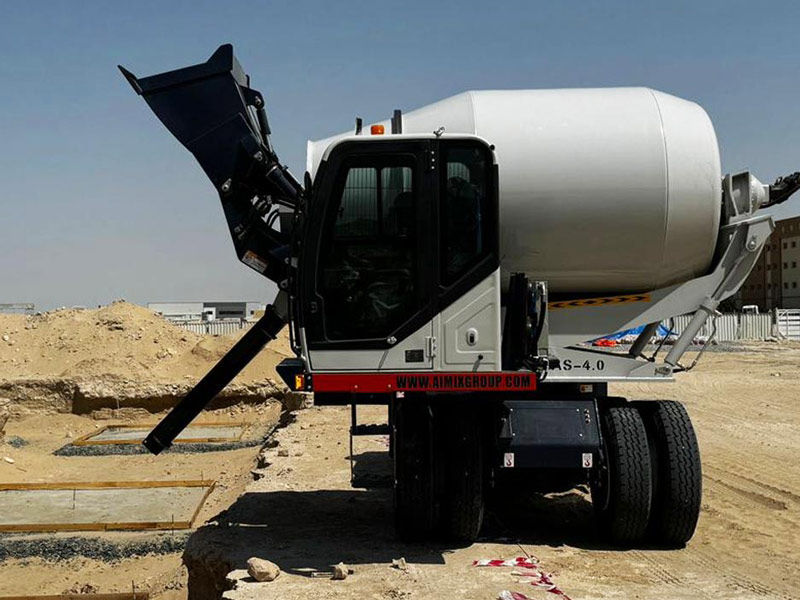Hydraulic Concrete Mixer Machine in Adverse Weather Conditions
- aimixglobal2024
- 2025年1月2日
- 讀畢需時 3 分鐘
Construction projects often face challenges from adverse weather conditions. A hydraulic concrete mixer machine can play a crucial role in overcoming these challenges. This blog will explore how hydraulic concrete mixers perform in various weather conditions and offer tips for optimal use.

Understanding Hydraulic Concrete Mixer Machines
A hydraulic concrete mixer machine uses hydraulic power for mixing concrete. This type of mixer offers several advantages, such as consistent mixing and increased efficiency. Understanding its features helps in leveraging its benefits, especially in adverse weather conditions.
Components and Functionality
The primary components of a hydraulic concrete mixer include the mixing drum, hydraulic pump, and motor. These parts work together to provide efficient and consistent mixing.
The hydraulic system allows for precise control of the mixing process. This ensures that the concrete mix meets the required specifications. In adverse weather, this control becomes even more critical.
Advantages Over Traditional Mixers
Hydraulic concrete mixers offer several advantages over traditional mixers. They provide more consistent mixing, which is essential in extreme weather. The hydraulic system also reduces wear and tear, extending the machine's lifespan.
These mixers are more efficient, reducing the time needed for mixing. This is particularly beneficial during adverse weather conditions when time is of the essence.
Performance in Adverse Weather Conditions
Adverse weather conditions can significantly impact construction projects. Aimix hydraulic concrete mixers can help mitigate these impacts. Let's explore how they perform in different weather conditions.
Cold Weather
Cold weather poses several challenges for concrete mixing. Low temperatures can slow down the curing process and affect the mix's consistency. Hydraulic concrete mixers offer solutions to these issues.
These mixers can maintain the desired mixing speed even in cold weather. This ensures a consistent mix, reducing the risk of weak concrete. Additionally, the hydraulic system can operate efficiently in low temperatures, preventing delays.

Hot Weather
Hot weather can cause the concrete to set too quickly. This can lead to issues with workability and strength. Hydraulic concrete mixers can help address these challenges.
The precise control offered by hydraulic mixers allows for adjustments to the mix during hot weather. This ensures that the concrete remains workable and meets the required specifications. The efficiency of the hydraulic system also helps in completing the mixing process quickly, reducing the impact of high temperatures.
Rainy Weather
Rainy weather can introduce excess water into the concrete mix. This can affect the mix's consistency and strength. Hydraulic concrete mixers can help manage these challenges.
The enclosed hydraulic system prevents water from entering the mix. This ensures that the concrete maintains its desired consistency. Additionally, the precise control allows for quick adjustments if excess water is introduced.
Tips for Using Hydraulic Concrete Mixers in Adverse Weather
Using hydraulic concrete mixers in adverse weather requires some additional considerations. Following these tips can help ensure optimal performance and quality.
Regular Maintenance
Regular maintenance of the hydraulic concrete mixer is crucial. This ensures that the machine operates efficiently in all weather conditions. Check the hydraulic fluid levels and look for any signs of wear or damage.
Regular maintenance prevents unexpected breakdowns. It also ensures that the mixer performs optimally, regardless of the weather.
Proper Storage
Proper storage of the mixer protects it from adverse weather conditions. Store the machine in a dry and sheltered location when not in use. This prevents damage from exposure to extreme temperatures and moisture.
Proper storage also extends the lifespan of the mixer. It ensures that the machine remains in good working condition for future projects.
Adjusting the Mix
Adjust the concrete mix according to the weather conditions. In cold weather, use warm water and accelerators to speed up the curing process. In hot weather, use cool water and retarders to slow it down.
Making these adjustments ensures that the concrete mix meets the required specifications. It also enhances the quality and durability of the finished product.
Conclusion
Hydraulic concrete mixer machines offer significant advantages in adverse weather conditions. Their efficiency, consistency, and precise control make them ideal for challenging environments. By understanding their features and following best practices, you can ensure optimal performance and quality in your construction projects.
Investing in hydraulic concrete mixers can help you overcome the challenges posed by adverse weather. They enhance the efficiency and quality of your work, ensuring successful project completion. Consider using hydraulic concrete mixers for your next project to experience these benefits firsthand.



留言